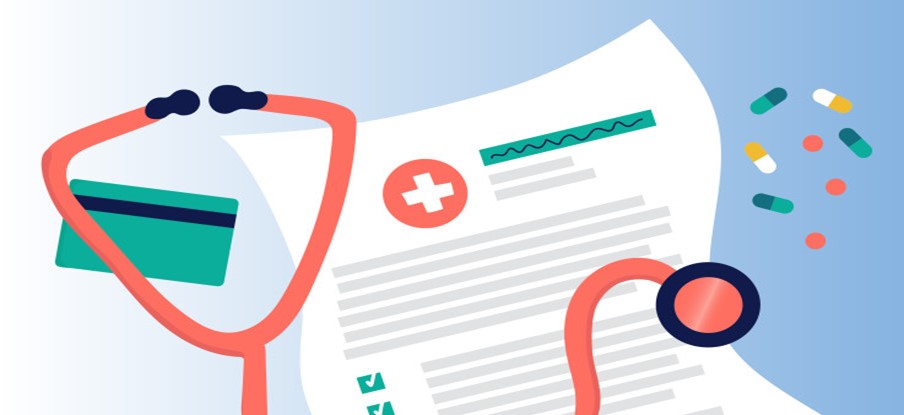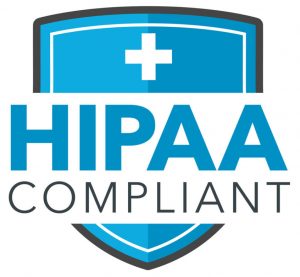Does Your Healthcare Solution Comply with HIPAA Regulations?
Speaking about the contemporary era, individuals are deeply concerned about both their health and the security of their data. Instances of data compromise and misuse have raised significant alarms. However, this blog will concentrate on safeguarding clients’ health-related information.

Let me explain by an example: when a patient seeks assistance from a healthcare provider or utilizes any healthcare solution, it becomes the utmost responsibility of the healthcare provider to implement all necessary precautions for safeguarding patient data. This is precisely the juncture where stringent rules and regulations for the protection of Health Information come into play.

About HIPAA and its associated terms:
HIPAA refers to the Health Insurance Portability and Accountability Act of 1996. This act establishes standards that delineate the legal usage and disclosure of protected health information (PHI). It is enforced by the Office for Civil Rights, a regulatory body under the Department of Health and Human Services (HHS). Another significant term we will delve into in the following section is “Covered Entity.” Primarily, this legislation centers around the concept of the “Privacy Rule.” This term ensures that individuals’ health information is appropriately safeguarded, while still allowing for the necessary flow of health information required to deliver and enhance high-quality healthcare, all the while safeguarding public health and well-being. The rule strikes a balance by permitting crucial information usage while upholding the privacy of individuals seeking care and recovery.
Who is Covered by the “Privacy Rule”?
The Privacy Rule applies to health plans, healthcare clearinghouses, and any healthcare provider that transmits health information in electronic form.
- Health Plan
Both individual and group plans that provide or cover the cost of medical care fall under the category of covered entities. For instance, consider a Health Insurance Company; this entity would be referred to as a ‘covered entity’.
- Healthcare Provider
Regarding various healthcare providers such as hospitals, any entity that electronically transmits health information in any format is considered a covered entity.
- Healthcare Clearinghouses
In simpler terms, you can think of these as third-party billing companies.
What Information is Protected?
You might be wondering about HIPAA’s focus on safeguarding health information. However, do you know what specific information falls under this protection?
In general, privacy regulations term this data as “protected health information” (PHI). The information that receives protection encompasses:
- The current, past, or future physical or mental health condition of a patient.
- The current, past, or future payments for the individual’s healthcare services.
Covered Entity’s Disclosure:
You might be wondering about the procedures in place for urgent disclosures of a patient’s health information. There are primarily two situations in which a covered entity can divulge a patient’s health information:
- When the individual (patient) or their personal representative (such as a spouse or parent) requests access to the patient’s health information or protected health information.
- When a healthcare provider needs to conduct an investigation or enforcement actions under the Department of Health and Human Services, they can provide the patient’s health information. Additionally, a covered entity is permitted, although not obligated, to utilize and disclose protected health information without an individual’s consent for the following purposes or situations:
- Treatment, Payment, and Healthcare Operations
- Activities Serving Public Interest and Benefit
- Incidental Use and Disclosure
Notification Rule:
A term known as the “breach notification rule” exists. This rule mandates that covered entities must provide specific notifications in the event of a breach of unsecured PHI (Protected Health Information).
Penalties for Noncompliance:
If a breach of an individual’s health information occurs, the Department of Health and Human Services has the authority to levy civil and criminal penalties on covered entities. Individuals who intentionally acquire or disclose personally identifiable health information in violation of HIPAA could be subject to a fine of $50,000 and up to one year of imprisonment.
In conclusion, before seeking services from any healthcare provider, it is essential to verify whether they are HIPAA compliant and prioritize the privacy of your health data.
Recent Posts
Integrated PDMP to help physicians address the opioid crisis
Top 5 Most Common Issues with Healthcare Systems today in US
Categories
Recent Comments
Archives
- February 2025
- November 2024
- July 2024
- April 2024
- February 2024
- November 2023
- September 2023
- August 2023
- February 2023
- January 2023
- July 2022
- April 2022
- March 2022
- February 2022
- January 2022
- December 2021
- November 2021
- October 2021
- September 2021
- March 2021
- December 2020
- November 2020
- October 2020
- May 2020


